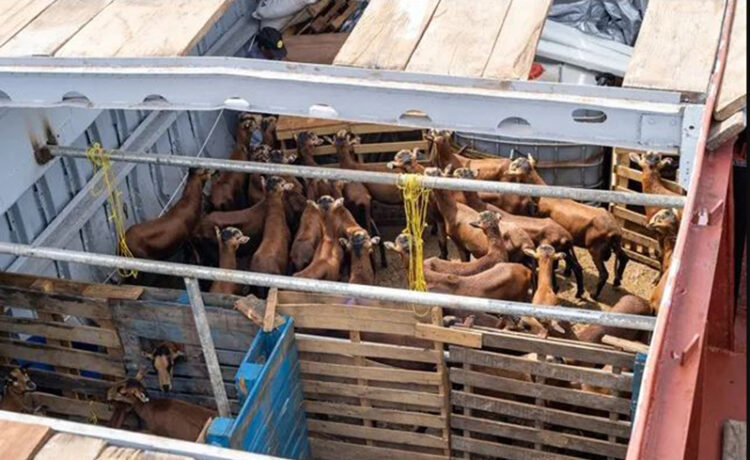THE government’s continuous investments in the livestock sector are significantly bettering the lives of Guyanese farmers by providing assistance and resources to bolster their agricultural activities.
From 2020 to now, the government has not faltered in supporting Guyanese and their ambitious endeavours in the agriculture sector.
Minister of Agriculture Zulfikar Mustapha, during a recent interview with the Department of Public Information (DPI), highlighted the government’s efforts to continue supporting locals and propel growth in the livestock sector by 7.5 per cent in 2025.
A grand $1.7 billion budget was designated to bring this goal to fruition and further build on the tremendous accomplishments achieved in 2024.
Upon assuming office in 2020, the government embarked on a comprehensive plan to radically transform the sector, and reverse the damage left after years of neglect by the previous administration.
During their tenure, the former government left acres of cattle pastureland to overgrow, neglected farmers’ needs, and failed to acquire sufficient resources and research among numerous other detrimental actions.
Contrastingly, the PPP/C government has implemented scores of transformational strategic initiatives to revitalise the sector and open the door to economic prosperity for farmers nationwide.
A particularly commendable undertaking was the Broiler Breeder Project which boasted unprecedented achievements in 2024.
For the first time, Guyana produced 167,000 hatching eggs, providing resources to 5,566 farmers.
Minister Mustapha explained the vitality of this project, saying, “This project targets self-sufficiency of Broiler hatching eggs to address uncertainty in supply with the recent avian influenza outbreak.”
He further emphasised how an allocated $85 million in Budget 2025 will propel this project’s advancement.
“In 2025, the broiler breeding facility will be further expanded with the procurement and installation of additional incubators, and there will be established poultry zones for improved biosecurity and economies of scale,” he said.
The government’s focus extended beyond implementing grand investments, and reached to assisting small-scale farmers.
Guyana has received 1,000 sheep and increased lamb stocks by 715 lambs through the Barbados Black Belly Sheep Project.
Through this government intervention, numerous farmers in every region witnessed their yields expanding, and in some cases doubling.
Farmers like 64-year-old Jacob Sheperd and single parent Yvonne Morris were able to triumph over their respective challenges, develop their flock, and improve their breeding.
Other notable achievements in this sector include: The upgrade of 28,000 acres of pastures in Regions Three, Five, Six and Ten; the opening up of 60 five-acre plots for pasture in Region Five; and the distribution of thousands of broilers and ducklings. Removal of value added tax (VAT) on key inputs in the poultry industry and zero-rating the poultry industry; Embryo Transfer Programme producing 238 confirmed pregnancies and 56 calf births; The expansion of primary ingredients in livestock feed like corn and soybean; Bull Importation Programme which saw 64 bulls being imported, resulting in 220 births to date, benefiting 34 farmers in six regions; Honey production increasing from 2,600 gals in 2023 to almost 30,000 gals in 2024; Investments in abattoirs for beef, ducks and swine, and advancements in the poultry and dairy milk industries to encourage private sector investment; The implementation of strict biosecurity measures; and the introduction of tunnel ventilated pens for broilers which continues to reduce the occurrence of endemic diseases
Continued budgetary allocations and unwavering government support will continue to benefit small and large-scale farmers, placing Guyana in an advantageous position to boast one of the strongest agriculture sectors in the Caribbean. (DPI)















